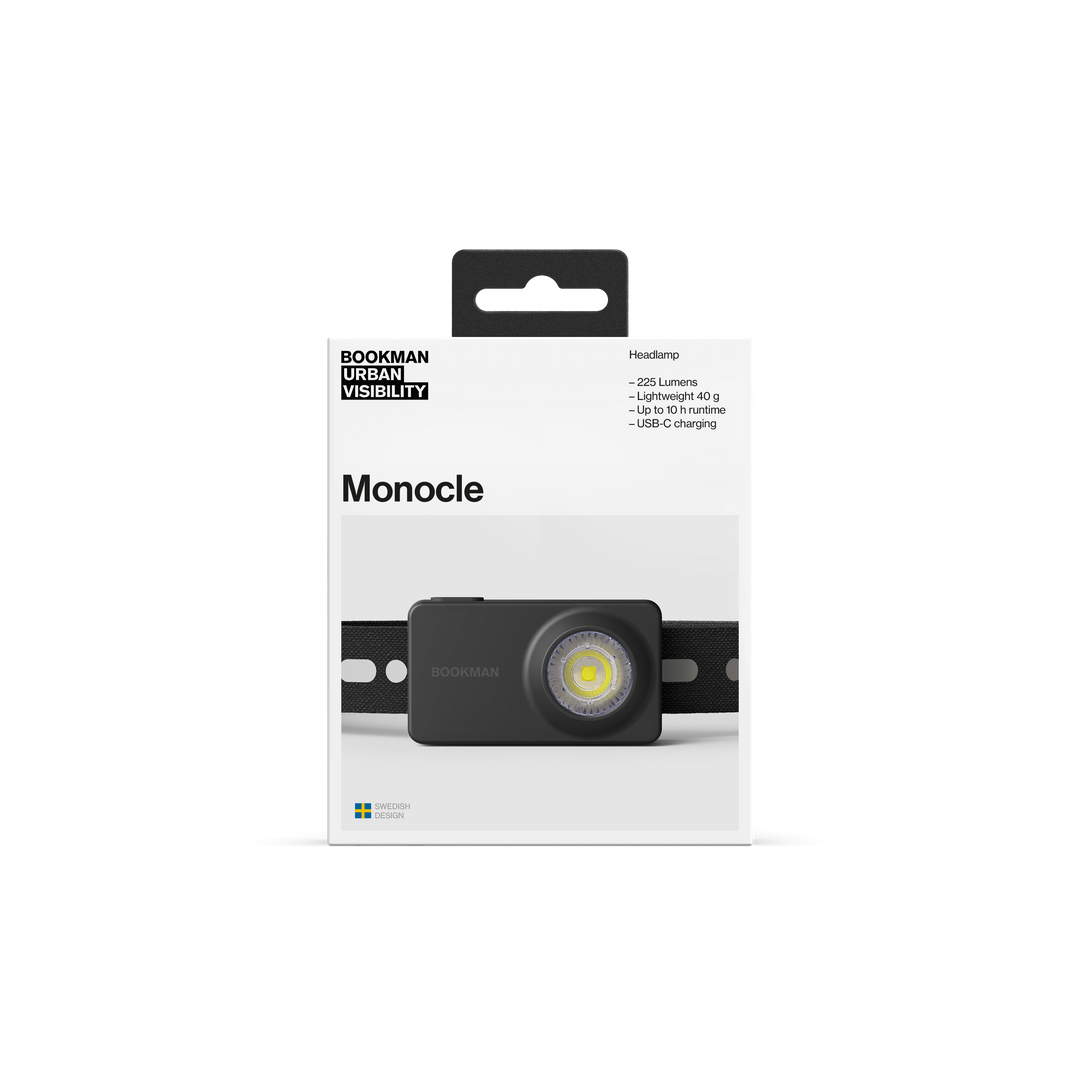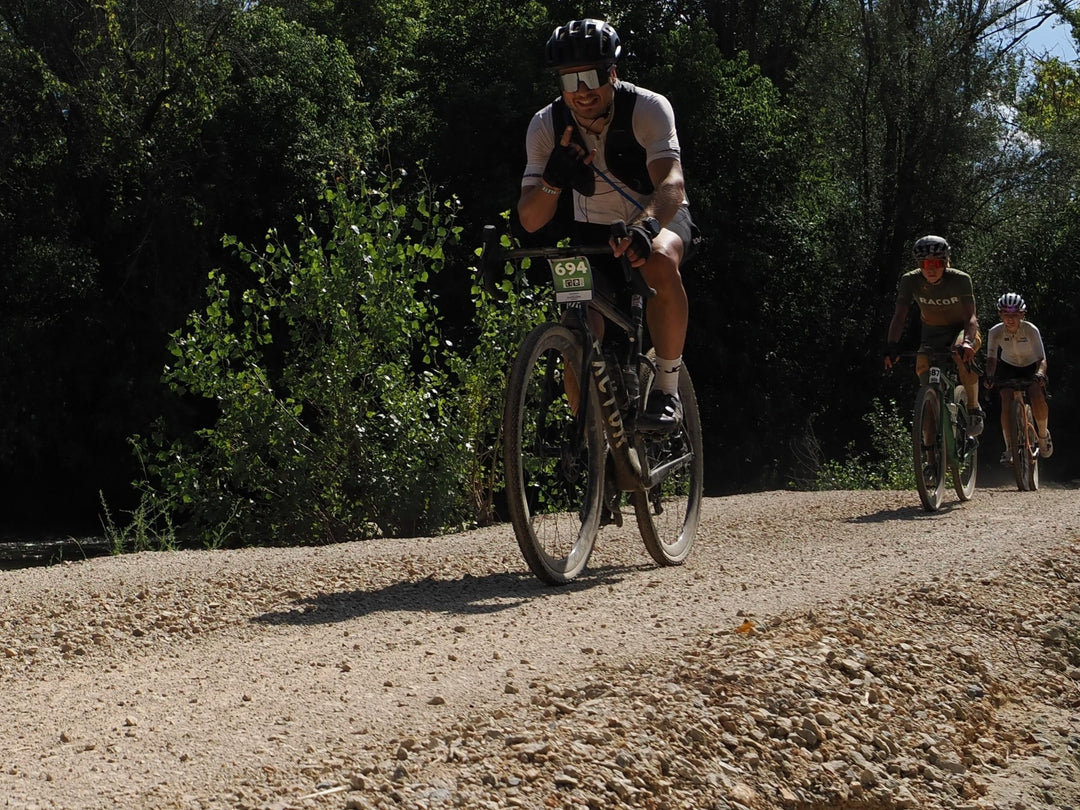Girona Gravel Race Report – Sea Otter Classic 2025

Co-Founder and Sales & Marketing Manager at Bookman, Victor Kabo, took on his first ever gravel race during the Sea Otter Classic 2025 in Girona. What began as a simple plan to combine work and racing quickly turned into a demanding yet unforgettable adventure — full of travel mishaps, mechanical challenges, and valuable lessons on resilience and preparation.
Preparations – Far from Optimal
This was my first ever gravel race, and the preparations were anything but smooth. The plan was to combine exhibiting with Bookman at the Sea Otter Classic tradeshow and line up for one of the many races around Girona.
The challenges started before I even left Sweden. The night before my flight I discovered a failing bottom bracket bearing. After a late attempt to fix it, I got far too little sleep. I almost missed my early flight to Barcelona – only thanks to the Bookman crew calling and waking up my wife (after 43 missed calls on my muted phone) did I make it.
When I landed, things got worse: my bike arrived, but my other bag – with all my gear, clothes, spare parts, and tradeshow equipment – did not. The entire first day disappeared into chasing luggage, setting up our booth, picking up my bib number, and desperately trying to secure backup equipment. Luckily, Mike at Cycles17001 was a lifesaver, providing me with a Factor gravel bike similar to mine.
My bag eventually turned up late the night before the race, but too late to rebuild my own bike. So I went for a test ride to make sure the bike fit of the borrowed bike wasnt too bad. As it was already late in the evening, I was happy to have a Bookman Volume 1500 with me to light up the road, and it did a great job also on some speedy gravel descents. I never got out to test the more technical race surface before the start though. To top it off, I realized I had left my bib number at the expo booth, which I had to retrieve on race morning.

The Race – From Chaos to Flow
The course was 100 km with nearly 2000 meters of climbing, spread across steep technical ascents and equally sketchy rocky descents. A full-suspension MTB would almost have been the better choice, and most riders ran 45mm+ tires – for good reason. Among the starters were world-class names like Romain Bardet and Matej Mohorič, plus Swedish friends Mikael Kipplilä, Calle Friberg, and my new coach Nathalie Eklund.
The race started hectic but manageable. On the first long climb (almost 4 km at up to 15%) I felt strong and produced some of my best 20-minute power numbers ever. But my luck soon ran out. A hidden hole caused a front flat just 30 minutes in.
At a spectator point, I joined a queue of riders waiting for a floor pump. It didn’t work, and only with the help of generous locals did we manage to insert a tube. I inflated hard to avoid another flat, but the trade-off was harsh handling and poor grip. Shortly after, I stopped to help a crashed rider with what looked like a broken arm – costing me a total of 20 minutes.

Settling In – Passing Riders in the Heat
Back on the bike, I found myself among slower riders. Oddly enough, this became a blessing. I could ride the sketchy descents without pressure, learn the terrain, and pace myself better. The flats were harder without a group, but the climbs felt fantastic – I passed dozens of riders in the 30°C Spanish heat.
The rocky downhills remained treacherous. In almost every corner, riders were sidelined with punctures or crashes. On the final climb I caught up with GCN’s Daniel Lloyd, who was clearly suffering. We chatted briefly before he tucked in behind my wheel for the flat run-in towards the finish.

The Finish – Lessons and Motivation
I crossed the line 30th in my age group. More importantly, I finished strong and with a smile. Without the flat tire and lost time, I would likely have qualified for the UCI Gravel World Championships – something to aim for next year.
Despite the chaos, this race was an incredible experience. It reminded me that gravel racing is as much about resilience and problem-solving as it is about power numbers. With better equipment choices, smoother travel, and a little luck, I know I can perform at a high level.
Key Takeaways
Preparation matters: travel logistics and equipment spares are as crucial as training. Don't spread your crucial cycling gear into different bags.
Tire choice is critical: wider and tougher tires might have prevented the flat, and permitted higher speed on the desents.
Stay adaptable: setbacks (like mechanicals or crashes) can actually create opportunities to learn and race smarter.
Next year, Girona – and maybe the World Championships – I’ll be back.







